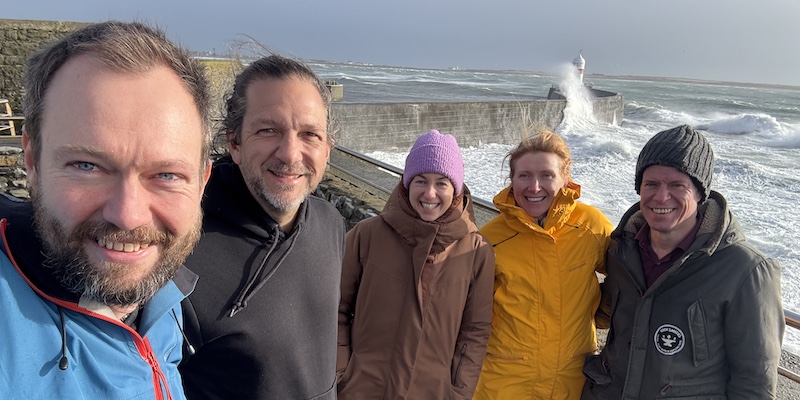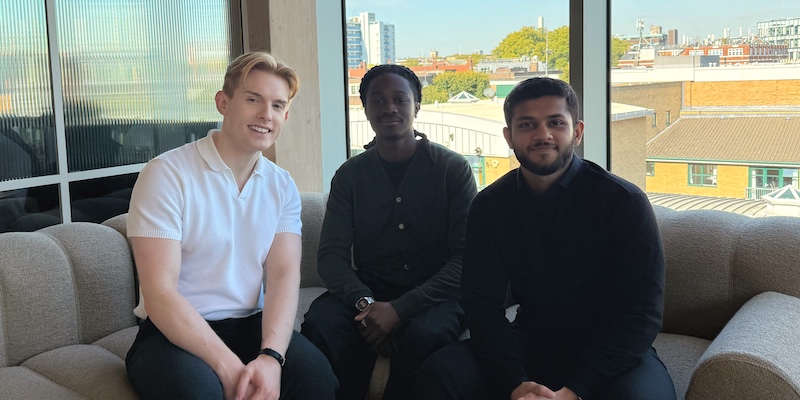
Supercharging tech for good startups, remotely
Lessons learned from taking our three-month intensive programme online
Sure we miss the people, coffee and post-it notes, but adapting to an online-only programme opens several new possibilities. It’s fair to say that the last months have not been easy. All of us have gone through tremendous changes and challenges as this pandemic has pushed us all to think differently and adapt the way we work from home. For us at BGV, our commitment to investing in and supporting talented founders hasn’t stopped. Back in April, we announced the ten tech for good startups who are receiving investment and support from BGV. However, this also meant we needed to move our 12-week intensive flagship programme online. As the programme manager and for the team as a whole - this was an exciting challenge. With only four weeks left on the programme, I’d like to share some of the tips and lessons we’ve learned. If there is one point to take away, it’s that a remote programme shouldn’t be defined by what is no longer possible, but instead by the opportunities it holds for enhanced focus, learning and direct support. It has been such a pleasure to support our first ever remote cohort and we have learnt a lot around managing an online programme along the way. We’re also now accepting applications for our Autumn 2020 programme and whilst we don’t yet know if it’s going to be fully remote again, we know it will go ahead. Iterate, Test, Repeat - running the programme like a productOn the programme, we push founders to think differently about product development and adopt a very user-centred approach. “Build with, not for”. Just like any of the startups we back, we need to continuously iterate, test and repeat. We’ve had to adapt to the current circumstances, change the format and some of the content of the sessions, and change the ways we support ventures during the programme. Here are some of the main steps we’ve taken to design a remote programme:
- Content: We’ve made sure to address the current crisis and restrictions in our sessions to push teams to think about what they can do instead of what they can’t, for example emphasising how to do remote user testing during the pandemic. We’ve also emphasised founder mental health and resilience during the programme.
- Format: Online workshops should ideally last no longer than 90 minutes and should be as practical as possible – it’s easy to lose focus on Zoom! To foster engagement, we do short exercises in class and then use breakout rooms. It is important to leave enough time in the breakout rooms for teams to dig into each subject without having to race against the clock. We usually leave the teams with some homework to do and the opportunity to have follow-on 1:1’s with the workshop leader. We have emphasised 1:1 support with the teams on this cohort as well as making valuable introductions to each of them to help them achieve their programme goals.
- Tools: Online tools have been crucial to ensure clear communication and easier collaboration and feedback between the teams, their peers, the BGV team, and external mentors. These are primarily Zoom, Slack, Miro, and Google Drive. To understand how to best coach teams, each founder made a ‘user-manual’ (h/t to Cassie Robinson for the template) on how they prefer to work, cooperate and receive feedback. We have also created a ‘BGV Syllabus’ - inspiration credits are due to Mozilla’s Open Leaders Course - so teams can easily access all the learnings from each session and keep track of assignments and additional resources week by week in addition to the programme handbook, which provides a full overview of the programme.
Adapting to a fully-remote programme required a lot of experimentation, testing and change, but feedback from the teams so far has been very positive, with one of our teams saying:
“During this tough time, the programme is the one constant in my life. More often than not I'm chasing my tail because of our work skyrocketing - the sessions are something I find myself looking forward to” - Shiti, Breathe Happy.
An online programme can still be a good experience for all involved!The hardest thing to emulate about the programme not being in person is the ‘in person’ part. It’s been important to learn and acknowledge that things are different, and trying to emulate being together in an office will not help. But the programme experience doesn’t have to lack something if it goes online – quite the contrary! Here are a few examples of changes we have made to adapt to the current circumstances:
- Peer support: the teams have gotten to know each other week by week through a variety of means. At the beginning of each week, we get the cohort together to set up the sprint’s content and encourage them to share what they’ve been up to and any challenges they face. Off the back of this, we’ve seen some teams make useful suggestions and introductions to their peers. We also encourage teams to share feedback in workshop exercises in breakout rooms or using the chat function, for example. It’s really great to see that teams are now helping each other out without any prompts.
- Mentoring: weekly mentoring sessions have been paramount to supporting the teams to achieve the goals they set themselves during the programme. We’ve been very structured in the way that we approach these sessions, advising the teams to set out a clear agenda and sending out work they’d like for us to review in advance.
- Experience check-ins: part of the trouble of going online is that it isn’t as easy to ask for feedback on the programme, but we’ve ensured that we schedule in regular calls with the teams just to discuss how they are finding the experience, if they’d like additional support in some areas, if they have any feedback/suggestions on how we can improve some of the sessions, etc. Being open to feedback and adapting to conditions has been vital.
- Coffee Breaks a huge perk of the cohort vibe is for the founders to share experience, advice, contacts and friendships. To make sure this isn’t lost, each founder has a new “buddy” each week to have a 30min coffee with every Wednesday morning. This has been a really simple, hassle-free way for founders in the cohort to get to know each other on a more personal level, share their experience on the programme and what they’re up to that week.
This pandemic has pushed us all to change our behaviours in a drastic way. The fact that we are now able to support our portfolio remotely is really exciting and means a lot in how BGV will be able to support founders in the future, including those living outside of London. This isn’t a closed book and we’ll continue to test, adapt and improve. We also have challenges left to overcome; such as how to create an excellent Demo Day or adapt our next programme to social distancing guidelines and requirements of individuals. As we continue to learn and grow, we’re really excited to be opening applications for our Autumn 2020 programme and you can sign up here to apply or talk about your idea with the BGV team.





